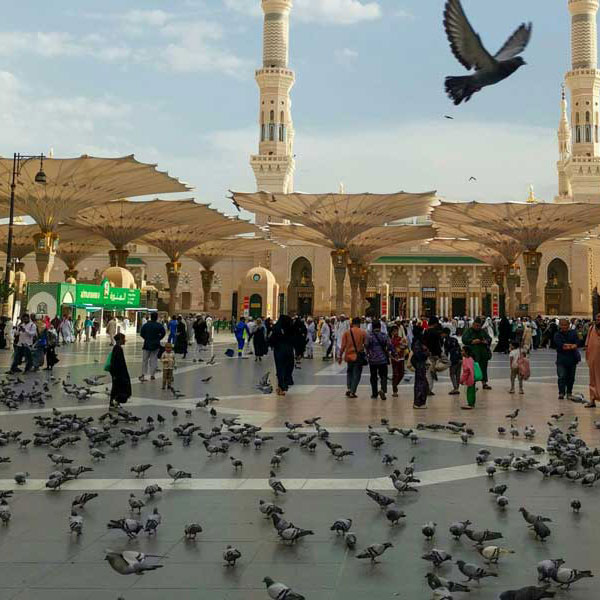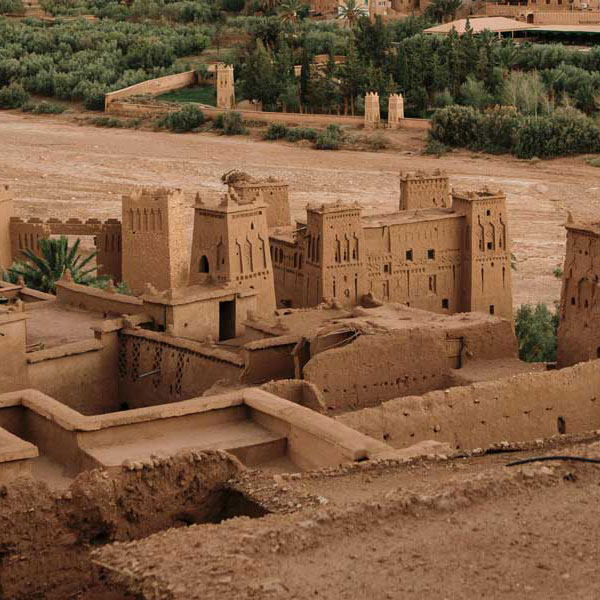
Laying the Foundation for The Ummah
Allah SWT has sent about 124,000 Prophets and Messengers throughout history but there is something special about Rasoolullah (peace be upon him). All previous Prophets came only to preach to their particular nation primarily, or to their specific tribe, but Rasoolullah (pbuh) came with the Message to all of mankind, until the end of time. Allah SWT says, “We have not sent you [O Muhammad] except as a messenger of good news and a warner to all people, but most people do not know” (Qur’an 34:28). Further, at the end of a long Hadith narrated by Jabir bin Abdullah (r), Rasoolullah (pbuh) said, “… Every Prophet used to be sent to his nation only, but I have been sent to all mankind” (al-Bukhari). Since Prophet Muhammad (pbuh) was sent to all humanity, then as his true followers, we are required to spread the Message by utmost sincerity and effort because no more Prophets or Messengers will be sent, and this Divine Message must be delivered. Yes! As Ahlus Sunnah wal Jamaa’ah [the people of the Sunnah and the Community who unite upon it], we do believe that in the end times, Prophet Jesus (a.s.) will be coming back, but he will not be coming with anything new. In fact, he will be following the Shari’ah of Muhammad (pbuh). Not judged by results Let us be clear that we will not be judged on the results in delivering this Message but on our efforts; the result is in the hands of Allah SWT. Today it seems that Da’wah revolves around numbers and speakers. In the Ahaadith it is reported in both Imaam al-Bukhari and Imaam Muslim that Rasoolullah (pbuh) said: “The nations were shown to me, and one or two Prophets would pass by me with a group [of followers], and a Prophet who had no one with him.” It is also narrated by at-Tirmidhi and an-Nasaa’i from Ibn ‘Abbaas, who said, “When the Prophet (pbuh) was taken on the Night Journey [Isra’ and Me’raj], one or two Prophets would pass by him who had a community with them, and one or two Prophets who had a small group with them, and one or two Prophets who had no one with them, until he passed by a great multitude…” Yet, all these Prophets carried out their responsibilities in delivering the message of Tawheed (The Oneness and Uniqueness of Allah SWT) to their people and preached against anything their people worshipped besides Allah. So, we have to go out and deliver the Message of the deen. And we do so with the wisdom and the methodology shown to us by Rasoolullah (pbuh). Allah SWT commands, “Invite to the way of your Lord with wisdom and good advice, and reason with them in a way that is best. Indeed, your Lord knows best who has strayed from His path, and He knows best who is guided” (Qur’an 16:125). Dear brothers and sisters — living as a minority here in the U.S., we have this responsibility to deliver the true Message to both Muslims and non-Muslims. The freedom of assembly and speech we have may not last for long, and we will be held accountable for the opportunities Allah SWT gives us to share this Message. The question we should constantly ask ourselves it this: “Did we fulfill our responsibility in delivering this Message as commanded by Allah SWT and His Messenger?” In fact, we should deliver the Message to the fullest extent of our ability, even if our ability is very limited, as Rasoolullah (pbuh) said in a hadith narrated by ‘Abd-Allaah ibn ‘Amr (RA): “Convey from me, even if it is one verse.” Al-Haafiz ibn Hajar (may Allah’s mercy be upon him) said in his book, Fath al-Baari: about this Hadith: “’Even if it is one verse’ means that everyone who heard him (pbuh) would hasten to convey whatever he heard of the verses, even if it was very little, so that in this manner everything that he (pbuh) brought would be conveyed.” Another scholar explains this Hadith in the following way: “If a person understands what he is calling people to, it makes no difference whether he is a great and prominent scholar or a seeker of knowledge who is serious in his pursuit thereof, or a regular person who has certain knowledge of the issue in question. The Messenger (pbuh) said, ’Convey from me, even if it is one verse,’ and he did not stipulate that the Daa’iyah [one who invites to Islam] should have reached a high level of knowledge, but it is essential that he should have knowledge of that to which he is calling people. But calling out of ignorance or calling based on emotion is not permissible.” Read Other Articles on Message International How should we deliver this message of Islam to people? First, it is important to connect with the people as Rasoolullah (pbuh) did for 40 years of his life before receiving revelation. If we just give speeches to the people and do not interact with them, allowing them to know who we are, what our beliefs, attitudes, and behaviors are in everyday and commonplace ways, then they are not very likely to give full attention to lectures, or be moved or inspired by them. Secondly, we should stand for justice for everyone in society. We know when Rasoolullah (pbuh) was given the news of his Prophethood by Angel Jibreel (a.s.), he went home and told Khadija (r) what had happened and expressed some worries about his experience. She told him, “Never! By Allah, Allah will never disgrace you. You keep good relations with your kin, help the poor and help the needy, serve your guests generously, and assist those afflicted by calamity.” Note that Khadija (r) described his virtuous behavior that he was known for before he had begun his mission as a Prophet. So, if we help other people in their social and economic affairs, in taking care of their needs, it opens the










